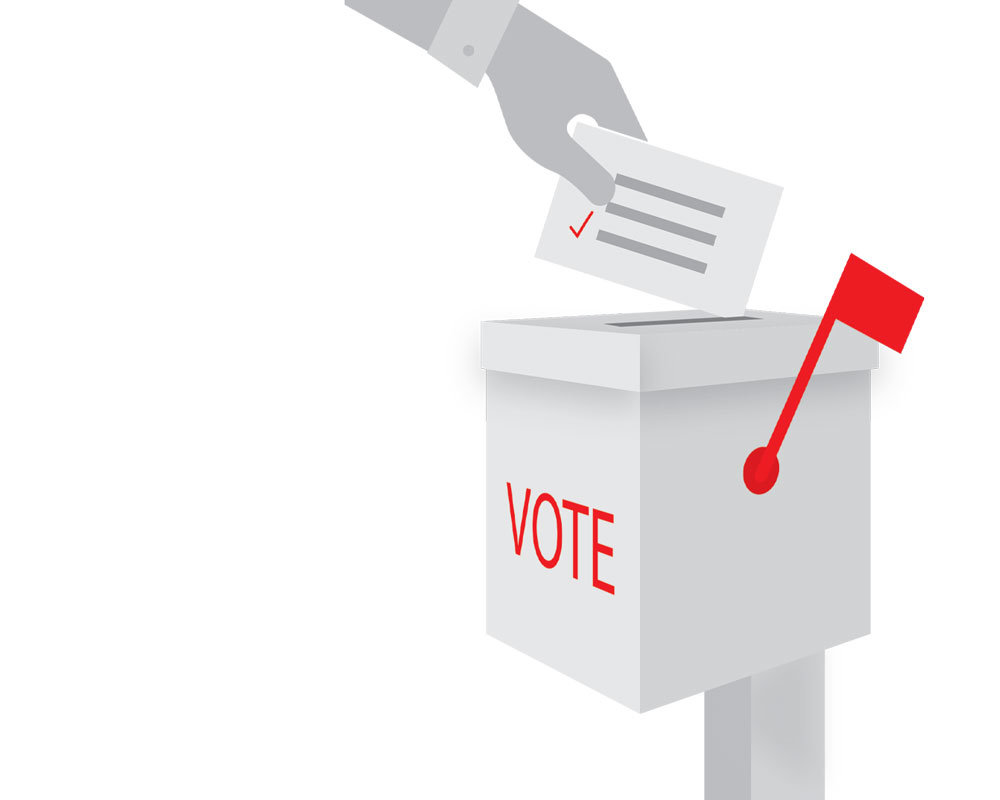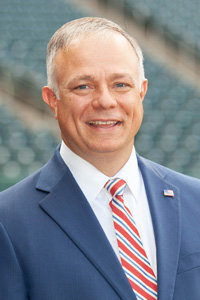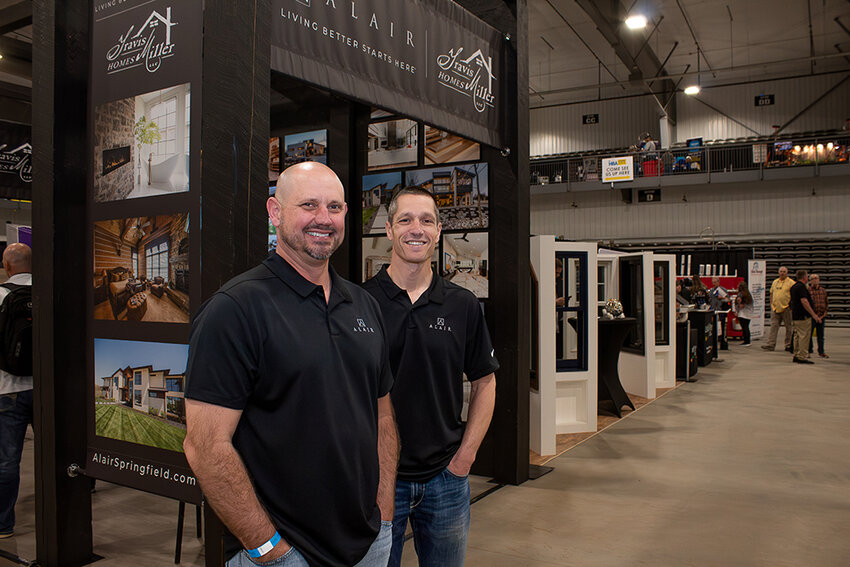YOUR BUSINESS AUTHORITY
Springfield, MO
YOUR BUSINESS AUTHORITY
Springfield, MO








Casting a ballot is shaping up to look very different for Missourians in 2020.
COVID-19 has impacted most aspects of daily life and business operations, and elections are no exception. State lawmakers and county clerks are deliberating an expansion to mail-in voting to follow social distancing and stay-at-home mandates.
“I want to protect the voter and their vote and allowing this option does that,” said Greene County Clerk Shane Schoeller.
Working on behalf of the Missouri Association of County Clerks & Election Authorities, Schoeller is part of a handful of county clerks offering recommendations to the Missouri General Assembly on adding a state of emergency, like the COVID-19 pandemic, as a reason to request an absentee ballot. Missouri is among roughly a third of states that require an approved excuse, such as illness or traveling on Election Day, to vote by mail.
Schoeller said, on average, 1%-2% of ballots are cast absentee in Greene County, and he projects that number could climb to 20%-25% if legislators approve the measure.
If the measure fails to pass in the last few weeks of session, it may be decided through the courts. The American Civil Liberties Union of Missouri and the Missouri Voter Protection Coalition filed a lawsuit on behalf of the NAACP of Missouri, the League of Women Voters of Missouri and others on April 17 to make absentee mail-in voting available to all state residents. The suit claims refusing to allow voters who are quarantining themselves to avoid contracting or spreading COVID-19 is a violation of the state’s voting laws.
Democrat and Republican lawmakers have shown support for the measure, citing the importance of accessibility to the ballot box amid a health crisis. And there’s even broader support among Americans, according to an April poll by the Pew Research Center. Nearly 70% favor allowing any voter to vote via mail for any reason. But the state’s top leader has characterized the issue as partisan.
In an April 15 interview with NPR, Gov. Mike Parson explained his decision to not issue an executive order to expand vote-by-mail options. He suggested Democrats are using the coronavirus to push through an agenda.
"That message was out there before this ever happened. … It’s quite evident that politics are involved in it,” Parson said. “I just don't think any one individual should be out there making that call.”
Missouri House of Representatives Minority Leader Crystal Quade, D-Springfield, called the governor’s statement “ludicrous.”
“This is not a partisan conversation and I hate that folks are saying that it is,” she said. “People are scared, but people also have the right to vote.”
House Speaker Elijah Haahr, R-Springfield, said he backs the effort and prefers the measure go through the legislature.
“It’s valid for us to protect people’s right to vote,” Haahr said. “If we’re telling them that you have to stay at home and you can’t travel, I think it’s also important to reflect that in the voting.
“When we’re considering creating new legislation, I want to make sure it doesn’t require an army of lawyers to figure out whether or not people can do it. I want it to be very clear and plain for the everyday Missourian.”
Quade said in talking with election attorneys, she understands Parson has the authority, as he already moved April municipal elections to June. But she appreciates caution in this unprecedented time.
“I understand him not wanting to take the authority he has under the state of emergency too far,” she said, “but when it comes to Missourians’ right to an election, this is one where statewide guidance will be really beneficial.”
Secretary of State Jay Ashcroft, the state’s top election authority, has said he won’t make a decision on the matter. He’s leaving the details up to local election officials.
Schoeller said mail-in voting regulations should be done statewide.
“We want to give voters a clear reason,” he said. “It’s important to get voters and election authorities on the same page. We want peoples’ ballots to count.”
In addition to allowing both healthy and sick people to vote absentee due to the COVID-19 pandemic without notarization, he said county clerks also support measures to allow early voting at designated voting centers and allowing voters to drop ballots off at designated locations. Schoeller also said he supports extending the time frame a ballot must be received by the election jurisdiction to the Friday following the election, to ensure everyone’s vote is counted.
The Election Administration and Voting Survey 2018 Comprehensive Report found that nearly a quarter of ballots nationwide were cast by mail, but roughly 27% of those were discarded because they were not received in time.
Schoeller said even with these changes, in-person voting will not stop completely.
“We are not designed to be able to go to an all vote-by-mail system,” he said. “I certainly support what we’re doing here and have been open to the idea of no-excuse absentee voting. Anytime you go to one system as the only system, then that takes away the options the voter prefers.”
To aid in elections during the pandemic, the federal government has set aside millions of dollars in funding.
Through the coronavirus relief bill, $400 million was allocated to help states and local communities prepare for elections amid COVID-19. Quade said there is roughly $9.1 million available in the state fund, with over $20 million of additional funding through a state fund focused on election improvement.
“When we talk to experts about what this will cost, we understand it is already allocated in the secretary of state’s budget and it is just sitting in a bank account,” Quade said.
Funding isn’t the only commodity; there’s also poll workers. Schoeller said in Greene County, roughly 80 polling locations utilize at least four election judges apiece, with some locations having up to 16 officials.
Quade said she’s received a number of emails from poll workers, who tend to be older, saying they’re fearful to get involved this year.
“When we look at Wisconsin, who just had their election a couple of weeks ago, they did not have enough poll workers and … the largest city that they have they dropped down to five locations,” she said. “From the emails I’ve been receiving from poll workers, a lot of them are saying they are simply not going to do it.”
Schoeller said he’s unsure how COVID-19 will affect the three remaining state elections this year, but he said if an alternative solution isn’t found, it will likely affect turnout. He points to the March election as an example.
“It affected our presidential primary turnout,” he said. “I had predicted 44% turnout, and it was closer to 25%.”
Haahr said he expected to hear findings from the county clerks association and bill sponsor Rep. Peggy McGaugh, R-Carrollton, on April 30.
“It’s definitely something we’re going to try to react to, specifically with the elections coming up in June and again in August,” he said. “Our focus as we come back is the budget and a lot of COVID-19 related items.”
Quade said while all elections are important, she stressed how critical it is to ensure the right to vote in 2020.
“When it comes to elections and the time of COVID, I believe Missourians are going to have a lot of say. There is no better place to voice those opinions than the ballot box,” she said.
Alair Springfield is first Missouri franchise for Canada-based company.


South Korea - held election April 4th. 26 million people voted traditionally in person. No China Virus cases directly contributed to that vote. NONE. it's over kill to vote by mail. it expands the voter fraud that already happens to a new level.
https://www.theepochtimes.com/south-koreans-brave-ccp-virus-to-vote-ruling-party-set-for-win_3313371.html
Steve